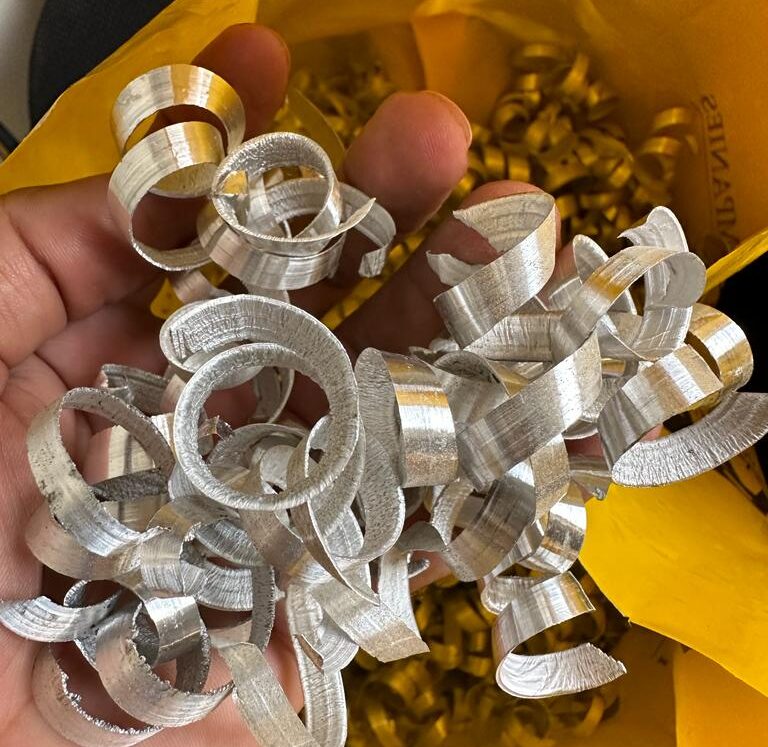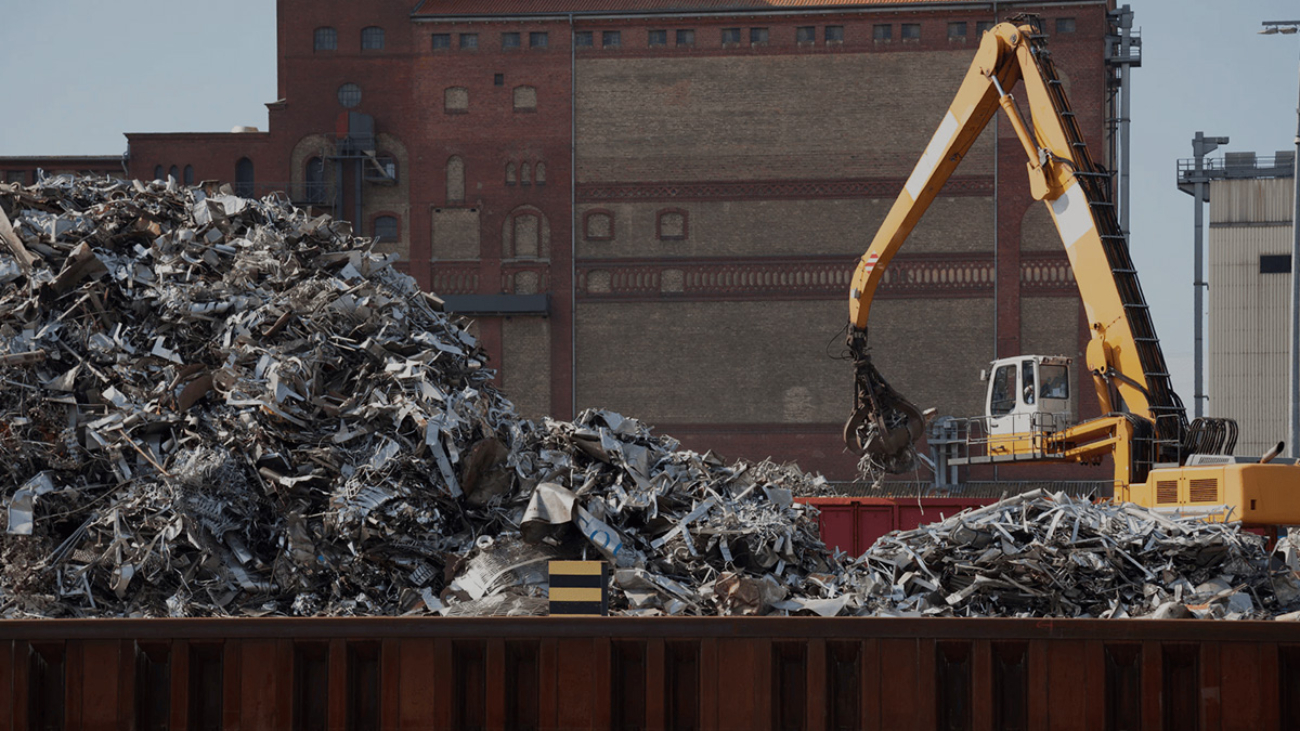Dubai is famous for its mega skyline, luxurious lifestyle and competitive business market. The scrap metal industry is one of the vital industries in this energetic city among all the industries that exist in it. Due to the most appropriate location, well-developed and maintained infrastructure as well as strong legal regulations Dubai has become the key point for scrap dealers and recycling companies. This report sheds light on the prospects of selling scrap metal particularly in the Dubai market and identifies significant players in the field such as Japan Scrap and UAE Scrap.
Introduction to Scrap Metal Industry in Dubai
Scrap metal industry has also evolved greatly over the last few decades, specifically in Dubai. This growth owes to several factors such as the strategic geographical location of Dubai, superior port infrastructure, and friendly trade policies. Some of the factors include the following; The city’s sustainability and recycling policies have also boosted the growth of the scrap metal market.

Importance of Scrap Metal Recycling
Recycling scrap metal is vital for several reasons:
- Environmental Benefits: Recycling plays its part in fighting climate change since it entails the need for the extraction of raw materials then processed, which may contribute to pollution.
- Economic Gains: This carrier plays an important role in the growth of the economy in as much as it provides employment and encourages trade.
- Resource Conservation: Recycling also carries the conservation of scarce materials since they can be used in the future.
Key Players in the Dubai Scrap Metal Industry
Japan Scrap
Japan Scrap has been a recognized player in the supply of scrap metals to the market in Dubai. Japan Scrap is a company that provides excellent services and has high levels of integrity within the business and focuses in purchasing and selling scrap metals such as ferrous and non-ferrous metals. The company has fairly good recycling practices since it takes environmental issues seriously and recycles products without polluting the surrounding environment.
UAE Scrap
The other key industry participant is UAE Scrap that has a vast network and well-organised work. The company is engaged in the purchase, sorting, and selling of scrap metals and offers its clients a full range of services. Due to passion for the customer and embracing of international standards, UAE Scrap has become favourite among many in the industry.
Types of Scrap Metals in Dubai
Ferrous Metals
Ferrous metals include metals that include iron and are usually magnetic in nature. They include:
- Steel: Belonging to the construction and manufacturing industries, steel is among the most commonly recycled products.
- Iron: It is a metal that is commonly used in appliances and machines commonly used in industries.
Non-Ferrous Metals
Non-ferrous metals do not contain iron and are non-magnetic. They include:
- Aluminium: Categorised as flat products for use in packaging and transportation and construction.
- Copper: It is valued for circumstance conductivity that is used in electrical wiring and plumbing.
- Brass and Bronze: Reuse in different applications because of their ability to resist corrosion and withstand pressure.
The Scrap Metal Recycling Process
The recycling process involves several stages, each crucial for converting scrap into reusable material.
Collection
The first activity involves sourcing scrap metals from households, businesses and various industries in the country. There is a proper collection system in place as seen in Japan Scrap and UAE Scrap to ensure that large quantities of scrap are collected on a regular basis.
Sorting
After being gathered from different sources, the scrap metal is then separated into types or grades. This process is vital to guarantee that the recycling process is effective and the recycled item is of the best standard.
Processing
Melter’s stage entails formation and melting of the scrap metal. The melting process also requires that the metal be further refined and a number of sophisticated tools and equipment are employed to disintegrate the metal piece and make it easier to melt.
Melting and Purification
The scrap metal is then melted in large furnaces and through this process it is separated into different types. In this process, contaminants are eliminated so that the final product of their disposal conforms to the desired specifications.
Solidification
The final product is then produced from this by shaping it into required forms like bars or plates after the melting process has been followed by purification.
Challenges Facing Scrap Dealers in Dubai
While the scrap metal industry in Dubai is thriving, it faces several challenges.
Market Volatility
Prices of ferrous and non-ferrous metals depend on fluctuations among various economic indicators and supply and demand ratios. They still have to be able to balance these for them to make good profits.
Regulatory Compliance
Scrap dealers have to follow the legal requirements of their countries and those of the exporting or importing countries. Some of the external constraints are regulation of the environment, safety measures and trade regulations.
Competition
The competition is high when it comes to the scrap metal market in Dubai where a number of firms have entered into the market with the aim of attaining a fair share in the market. Resource taking place firms such as Japan Scrap and UAE Scrap must monitor the form of service delivery adequately to overcome competition.
Opportunities for Growth in the Scrap Metal Industry
Despite the challenges, there are several opportunities for growth in the scrap metal industry in Dubai.
Technological Advancements
The extensive use of improved technologies can improve the quantitative and qualitative characteristics of recycling. Advanced technologies such as automation and artificial intelligence can help with sorting and save resources in the process, too.
Expanding Markets
Expanding the product range in new geographic areas domestically and internationally can be another source of revenues. Strategic cooperation as well as development of the distribution channels as main ways to achieve growth.
Sustainable Practices
With the general awareness of environmental issues, people have called for environmentally friendly practices within their societies and organisations. It attests that when organisations embrace sustainable production processes, they are likely to get more customers hence creating a good reputation in the market.
Conclusion
The scrap metal industry in Dubai is in a constant evolution and plays a crucial role in society. This shows that firms such as Japan Scrap and UAE Scrap are heavily involved in this sector and are very vital in creating awareness on the right means of recycling electronic wastes. It becomes clear that there are many opportunities and strong potential for the development of the industry by focusing on technologies, on expanding markets, and on a sustainable future.
Key Takeaways
- Strategic Location: Information on the type and nature of the industry revealed thatDubai is strategically positioned and well endowed with infrastructure and facilities essential in the scrap metal business.
- Environmental Impact: Scrap metal recycling also helps in environmental conservation since there will be less carbon emission and precious resources will have been eliminated from the surface of the earth.
- Industry Leaders: Some of the major companies are emerging as key players include Japan Scrap and UAE Scrap providing quality services and being conscious about conservation of environment.
- Growth Opportunities: Opportunities facing the organisation are a result of technology, availability and increasing markets and sustainable improvement of the firm.
- Future Trends: The continuous advancement of Circular Economy, Digitalization, and Green initiatives are directing the future of the Scrap Metal Industry.
By understanding the market dynamics and leveraging growth opportunities, scrap dealers in Dubai can continue to thrive and contribute to a more sustainable future.

